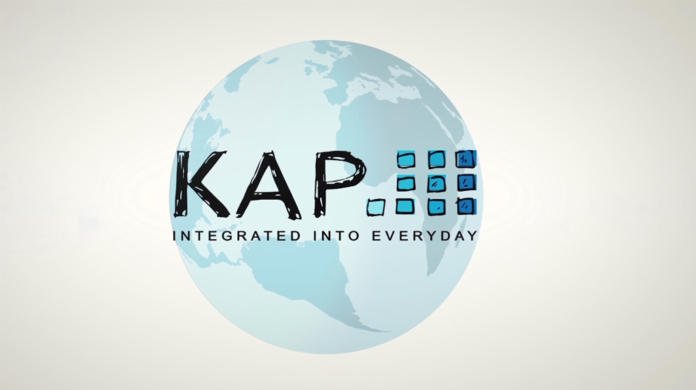IT’S been a really tough grind for most industrial companies in SA over the past five years – but Stellenbosch-headquartered KAP Industrial is still pressing ahead with various new capacity expansion projects and technology investments.
Many of these will be commissioned during financial 2020, and could be complemented by further capacity expansion opportunities to grow profits.
KAP has confirmed acquisition opportunities that meet the group’s strategic requirements and create shareholder value remain a key element of the growth objectives of management. CEO Gary Chaplin noted: “It is anticipated that the current distressed economic environment will yield increased opportunities in this regard.”
But it’s not like KAP has stood still fearfully while the local economy fizzled out. Chaplin pointed out that in previous financial years, the group embarked on a number of significant expansion projects at its operations and concluded a number of acquisitions – resulting in the investment of R7.8 billion over the 24 months to 30 June 2018.
The group has also honed operations, selling the Glodina textile business, a division of KAP’s Vitafoam subsidiary for over R100m in September last year.
In the past financial year (to end June 2019) KAP’s replacement capital expenditure continued confidently – topping a not insubstantial R811 million (net of proceeds on disposal, insurance proceeds and government grants.
On top of that expansion capital expenditure of R420 million was invested in the group’s asset base to drive growth and efficiency benefits. Chaplin indicated that capital expenditure was mainly directed towards logistics long-haul vehicles and passenger transport assets in the Unitrans stable.
Fortunately for KAP the array of industrial operations generate strong cash flows, and in the past year new debt was whittled down by more than R1.2 billion to under R4.5 billion with the gearing ratio easing markedly to 35% (previously a tighter 45%).
In terms of profit performance, KAP saw revenue from continuing operations increasing a sprightly 12% to R25.6 billion. But the tougher trading conditions pressed operating profit down 13% to around R2.5 billion.
The star performer was the Contractual Logistics – Africa segment, which managed to boost revenue to over R2 billion (last year: R1.8 billion) and operating profit to R283 million (R268 million).
Contractual Logistics’ operations in non-South African territories comprise mainly of activities in the petrochemical and agricultural sectors with smaller operations in mining and cement in southern and east African countries.
Chaplin said the division performed well for the year, supported by stable volumes at its major operations and good operational execution.
He said that with a significant number of contracts at or nearing renewal stage, the division is focused on contract retention, volume growth, technology investments and efficiency improvements in an increasingly competitive environment.
Chaplin also did not have to lose much sleep over the performance of KAP’s Integrated Bedding division with revenue and operating profit higher at R1.55 billion and R239 million respectively(FY18: R224 million).
The Integrated Bedding division managed to overcome the depressed retail environment by continuing to implement its strategy of technology investments to reduce its cost of manufacture, develop its brands and grow market share.
Chaplin aid that the recent acquisition of Support-a-Paedic helped the division continue to grow its market share and brand equity.
He said the mattress manufacturing and process automation investments associated with the R250 million integrated bedding plant would be completed before the 2019 peak trading period. This would facilitate production efficiencies at higher production volumes.
KAP’s automotive segment also revved revenue and profits – which accelerated to R2.2 billion and R266 million respectively.
Chaplin said an 11% increase in industry new vehicle assembly volumes supported the revenue, volume and profit growth of the division.
Specifically he mentioned the model replacements of the VW Polo and the BMW X3 introduced during the previous financial year was ramped up as planned.
The division also benefited from efficiency improvement projects and new technologies associated with the new model introductions during the second half of the year.
Chaplin said the extension of the Automotive Production and Development Programme (APDP) to 2035 provided much-needed clarity and stability to the automotive sector. “We believe this will lead to growth opportunities for the division.”
He did warn, however, that production disruptions associated with the introduction of a replacement models were expected during the next financial year.
KAP’s integrated timber segment – which includes PG Bison – pushed up revenue to over R4 billion (previously R3.6 billion) but operating profit was slightly down at R806 million.
This division comprises forestry, sawmilling, pole manufacture, panel manufacture and upgrading operations.
Chaplin said the division’s panel products operations performed well for the year – showing volume, revenue and operating profit growth. “It continued to pursue its strategy of technology investments to reduce its cost of manufacture, increase the proportion of value-added products and grow market share.”
He said the division discontinued the sale and distribution of solid surfacing and high-pressure laminate products during the year in order to focus on its own manufactured products.
Chaplin said the resin operation performed well for the year with increased volume and improved sales mix.
But he pointed out that the division’s forestry; sawmilling and pole operations in the southern Cape were significantly impacted by the operational effects of the extensive fires experienced in the region during 2017 and 2018. This had a R68 million negative effects on the division’s operating results compared to the prior year.
Chaplin said the timber segment had initiated new projects to expand particleboard capacity and improve efficiencies at both its plants.
An additional MFB (melamine-faced board) upgrading press has also been commissioned.
Chaplin said the combined cost of these investments would top R200 million, the majority of which would be incurred in the next financial year.
